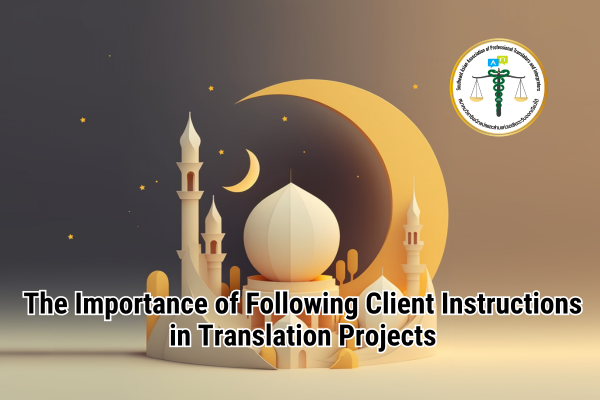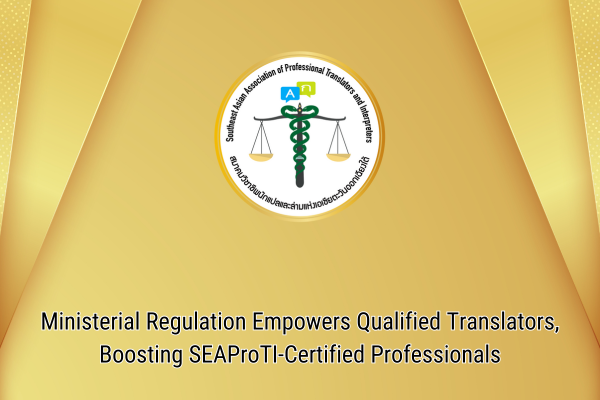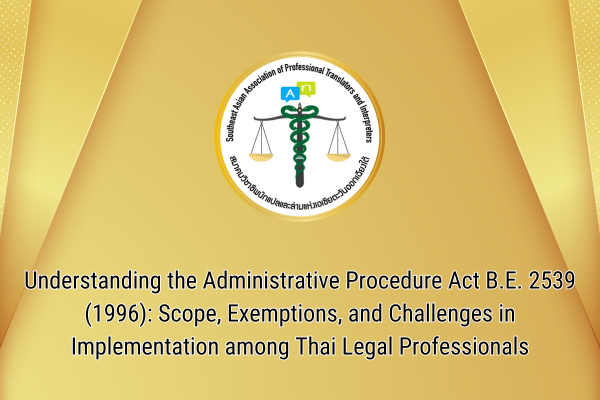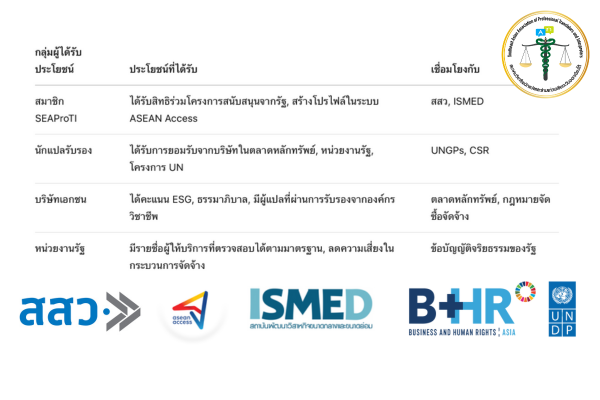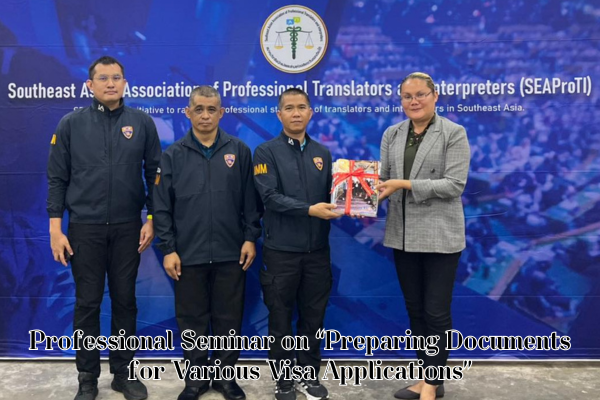Ramadan: A Month of Adjustment and Dedication for Muslim Translators and Interpreters
Ramadan has arrived once again, bringing with it an atmosphere of reflection, kindness, and self-discipline. This month is not only a time of spiritual significance but also a period of unique challenges, especially for Muslim translators and interpreters who continue their work while fasting. This article explores fascinating facts about Ramadan and delves into how Muslim translators and interpreters manage their responsibilities during this sacred month, offering insight into their dedication and resilience.
Fascinating Facts About Ramadan
Ramadan follows the lunar calendar, shifting forward by approximately 10-12 days each year. This means longer summer fasts are on the horizon in the near future. Fasting extends beyond abstaining from food and drink—it encompasses self-discipline, compassion, and avoiding negative behaviors, such as impatience or harsh words.
The pre-dawn meal, known as “suhoor,” is highly encouraged. The Prophet Muhammad (PBUH) described it as a blessed meal, making it a vital part of the fasting routine, even if it means eating in the early hours. Dates play a key role in breaking the fast, offering an immediate energy boost and holding special significance as a favorite of the Prophet (PBUH), cementing their status as Ramadan’s superfood.
Special greetings also mark the month. Phrases like “Ramadan Mubarak” (رمضان مبارك), meaning “Blessed Ramadan,” and “Ramadan Kareem” (رمضان كريم), meaning “Generous Ramadan,” are widely used to wish others well during this time.
How Muslim Translators and Interpreters Manage During Ramadan
Muslim translators and interpreters face significant challenges during Ramadan. Fasting from dawn to dusk requires abstaining from food and water while their work demands high concentration and energy—whether translating lengthy documents or interpreting discussions in meetings. At times, they must also engage with clients or colleagues unfamiliar with the context of fasting.
To succeed, they adopt several strategies:
- Preparing the Body: Suhoor includes protein and slow-release carbohydrates, like brown rice or whole-grain bread, paired with plenty of water to sustain energy throughout the day.
- Resting When Possible: A short 15-20 minute nap during a break can recharge the mind, a practice aligned with the Prophet’s advice.
- Maintaining Patience: Difficult questions or pressure may arise, but composure is key, as Ramadan emphasizes emotional restraint.
- Adjusting Schedules: Heavy tasks may shift to after breaking the fast, when energy returns, or to early mornings when suhoor’s benefits are still strong.
- Keeping Dates Handy: At iftar, a few dates quickly restore energy levels.
Popular Homemade Ramadan Dishes
Ramadan wouldn’t be complete without delicious food. Common homemade dishes for breaking the fast include Moroccan harira soup, chicken and vegetable skewers, Middle Eastern cheese-stuffed borek, atayef asafiri filled with Nutella or clotted cream, and ka’ek bi ajweh, a pastry stuffed with date paste. These dishes not only replenish energy but also bring joy to the table.
Conclusion
Ramadan is more than a month of fasting—it’s a time of self-improvement and dedication. For Muslim translators and interpreters, maintaining work quality amid these challenges is a testament to their commitment. Wishing all who observe a smooth Ramadan, answered prayers, and delightful iftar meals. For those around them, understanding and support are invaluable gifts. Ramadan Mubarak! 🌙
SEAProTI’s certified translators, translation certification providers, and certified interpreters:
The Southeast Asian Association of Professional Translators and Interpreters (SEAProTI) has officially announced the criteria and qualifications for individuals to register as “Certified Translators,” “Translation Certification Providers,” and “Certified Interpreters” under the association’s regulations. These guidelines are detailed in Sections 9 and 10 of the Royal Thai Government Gazette, issued by the Secretariat of the Cabinet under the Office of the Prime Minister of the Kingdom of Thailand, dated July 25, 2024, Volume 141, Part 66 Ng, Page 100.
To read the full publication, visit: the Royal Thai Government Gazette
รอมฎอน: เดือนแห่งการปรับตัวและความทุ่มเทของนักแปลและล่ามมุสลิม
รอมฎอนมาเยือนอีกครั้ง พร้อมกับบรรยากาศของการไตร่ตรอง ความเมตตา และการฝึกฝนตนเอง เดือนนี้ไม่เพียงนำพาความพิเศษทางจิตวิญญาณมาให้ แต่ยังเป็นช่วงเวลาที่ท้าทายสำหรับหลายคน โดยเฉพาะนักแปลและล่ามมุสลิมที่ต้องทำงานท่ามกลางการถือศีลอด บทความนี้จะพาไปสำรวจเกร็ดน่ารู้เกี่ยวกับรอมฎอน พร้อมเล่าเรื่องราวการปฏิบัติตัวของนักแปลและล่ามมุสลิมในช่วงเดือนอันศักดิ์สิทธิ์นี้ เพื่อให้เข้าใจและชื่นชมความทุ่มเทของพวกเขามากยิ่งขึ้น
เกร็ดน่ารู้เกี่ยวกับรอมฎอน
รอมฎอนเป็นเดือนที่กำหนดโดยปฏิทินจันทรคติ ทำให้เลื่อนไปประมาณ 10-12 วันในแต่ละปี หมายความว่าช่วงหน้าร้อนที่วันยาวนานกำลังจะกลับมาในอนาคตอันใกล้ การถือศีลอดไม่จำกัดแค่การงดอาหารและน้ำ แต่ครอบคลุมถึงการฝึกวินัย ความเมตตา และการละเว้นพฤติกรรมที่ไม่ดี เช่น การแสดงความหงุดหงิดหรือการพูดจาไม่เหมาะสม
มื้อก่อนรุ่งสางหรือ “ซูโฮร์” ถือเป็นมื้อสำคัญที่ท่านศาสดามูฮัมหมัด (ศ็อลฯ) เรียกว่าเป็นมื้อแห่งความจำเริญ จึงไม่ควรข้ามแม้จะต้องตื่นมากินตอนเช้ามืด อินทผลัมก็มีบทบาทสำคัญในการละศีลอด ด้วยคุณสมบัติที่ให้พลังงานทันทีและเป็นอาหารที่ท่านศาสดาโปรดปราน ทำให้กลายเป็นสัญลักษณ์ของรอมฎอน
นอกจากนี้ยังมีคำทักทายพิเศษ เช่น “รอมฎอน มุบารอก” (رمضان مبارك) แปลว่า “ขอให้รอมฎอนนี้มีความจำเริญ” และ “รอมฎอน การีม” (رمضان كريم) แปลว่า “ขอให้รอมฎอนนี้เต็มไปด้วยความเอื้อเฟื้อ” คำเหล่านี้ใช้กันอย่างแพร่หลายเพื่ออวยพรให้แก่กัน
นักแปลและล่ามมุสลิมในช่วงรอมฎอนปฏิบัติตัวอย่างไร
นักแปลและล่ามมุสลิมเผชิญความท้าทายไม่น้อยในช่วงรอมฎอน การถือศีลอดตั้งแต่รุ่งสางถึงค่ำ ต้องงดน้ำและอาหาร ขณะที่งานแปลและงานล่ามต้องการสมาธิและพลังงานสูง ไม่ว่าจะเป็นการแปลเอกสารยาว ๆ หรือการตีความคำพูดในที่ประชุม บางครั้งยังต้องเจรจากับผู้ที่ไม่เข้าใจบริบทของการถือศีลอด
เพื่อให้งานลุล่วง นักแปลและล่ามมุสลิมมักปฏิบัติตัวดังนี้:
- เตรียมร่างกายให้พร้อม: มื้อซูโฮร์ต้องเลือกอาหารที่มีโปรตีนและคาร์โบไฮเดรตเชิงซ้อน เช่น ข้าวกล้องหรือขนมปังโฮลวีต พร้อมดื่มน้ำให้เพียงพอ เพื่อรักษาพลังงานตลอดวัน
- พักผ่อนระหว่างวัน: หากมีโอกาส งีบสั้น ๆ 15-20 นาทีช่วยฟื้นฟูสมองได้ดี ซึ่งสอดคล้องกับคำแนะนำของท่านศาสดา
- ควบคุมอารมณ์: งานอาจเจอคำถามซ้ำหรือความกดดัน แต่ต้องรักษาความอดทน เพราะรอมฎอนเน้นการฝึกจิตใจ
- ปรับตารางงาน: งานหนักอาจเลื่อนไปหลังละศีลอดเมื่อร่างกายกลับมาสดชื่น หรือทำช่วงเช้าตรู่ที่พลังจากซูโฮร์ยังเต็มเปี่ยม
- เตรียมอินทผลัมไว้ใกล้ตัว: เมื่อถึงเวลาละศีล อินทผลัมเพียงไม่กี่ลูกช่วยเติมพลังได้ทันที
อาหารโฮมเมดยอดนิยมในรอมฎอน
รอมฎอนขาดอาหารอร่อย ๆ ไม่ได้ เมนูโฮมเมดที่มักพบในมื้อละศีลอด เช่น ซุปฮารีราแบบโมร็อกโก ไก่และผักเสียบไม้ย่าง โบเร็คสอดไส้ชีสสไตล์ตะวันออกกลาง อะตายิฟ อัสซาฟีรีสอดไส้นูเทลล่าหรือครีมข้น และกาอิก บิ อัจเวะ ขนมแป้งสอดไส้อินทผลัมบด เมนูเหล่านี้ไม่เพียงเติมพลัง แต่ยังสร้างความสุขให้กับทุกคน
สรุปส่งท้าย
รอมฎอนเป็นมากกว่าเดือนแห่งการถือศีลอด แต่เป็นช่วงเวลาแห่งการฝึกฝนตนเองและความทุ่มเท โดยเฉพาะสำหรับนักแปลและล่ามมุสลิมที่ต้องรักษาคุณภาพงานท่ามกลางความท้าทาย ขออวยพรให้ทุกคนที่ถือศีลอดมีรอมฎอนที่ราบรื่น คำอธิษฐานได้รับคำตอบ และมื้อละศีลเต็มไปด้วยความอร่อย ส่วนผู้ที่อยู่รอบข้าง ความเข้าใจและการสนับสนุนคือของขวัญที่มีค่า รอมฎอน มุบารอก! 🌙
เกี่ยวกับนักแปลรับรอง ผู้รับรองการแปล และล่ามรับรองของสมาคมวิชาชีพนักแปลและล่ามแห่งเอเชียตะวันออกเฉียงใต้
สมาคมวิชาชีพนักแปลและล่ามแห่งเอเชียตะวันออกเฉียงใต้ (SEAProTI) ได้ประกาศหลักเกณฑ์และคุณสมบัติผู้ที่ขึ้นทะเบียนเป็น “นักแปลรับรอง (Certified Translators) และผู้รับรองการแปล (Translation Certification Providers) และล่ามรับรอง (Certified Interpreters)” ของสมาคม หมวดที่ 9 และหมวดที่ 10 ในราชกิจจานุเบกษา ของสำนักเลขาธิการคณะรัฐมนตรี ในสำนักนายกรัฐมนตรี แห่งราชอาณาจักรไทย ลงวันที่ 25 ก.ค. 2567 เล่มที่ 141 ตอนที่ 66 ง หน้า 100 อ่านฉบับเต็มได้ที่: นักแปลรับรอง ผู้รับรองการแปล และล่ามรับรอง


